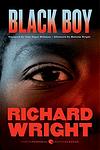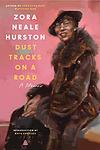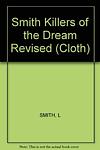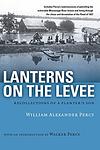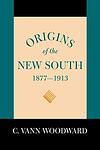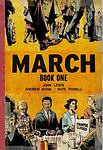The Greatest "Nonfiction, Southern US" Books of All Time
Click to learn how this list is calculated.
This list represents a comprehensive and trusted collection of the greatest books. Developed through a specialized algorithm, it brings together 300 'best of' book lists to form a definitive guide to the world's most acclaimed books. For those interested in how these books are chosen, additional details can be found on the rankings page.
Genres
The "Southern US" category for books encompasses a diverse range of literature that is rooted in the unique cultural, historical, and social fabric of the American South. This genre often delves into themes such as racial dynamics, class struggles, family sagas, and the significance of religion and tradition, reflecting the complex legacy of the region. Southern literature is renowned for its rich storytelling, distinctive dialects, and vivid descriptions of the Southern landscape, from the languid bayous of Louisiana to the rolling hills of the Appalachian Mountains. Authors in this category, such as William Faulkner, Harper Lee, and Flannery O'Connor, are celebrated for their ability to capture the essence of Southern life, with its beauty and its contradictions, offering readers a window into the heart and soul of the Southern experience.
Countries
Date Range
Reading Statistics
Click the button below to see how many of these books you've read!
Download
If you're interested in downloading this list as a CSV file for use in a spreadsheet application, you can easily do so by clicking the button below. Please note that to ensure a manageable file size and faster download, the CSV will include details for only the first 500 books.
Download-
1. Let Us Now Praise Famous Men by James Agee
This book is an in-depth examination of the lives of three tenant families in the South during the Great Depression. The author combines detailed descriptions, journalistic reporting, and poetic prose to capture the harsh realities of poverty, racial discrimination, and the struggle for survival. The book also includes evocative photographs that further illustrate the living conditions and daily lives of the families. The work is a profound exploration of the human condition, offering a raw and unflinching look at the effects of economic and social injustice.
-
2. Black Boy by Richard Wright
"Black Boy" is an autobiographical account of a young African-American boy growing up in the South during the early 20th century. The book explores his experiences with extreme poverty, racism, and his struggle to find his place in a society that marginalizes and devalues him. The protagonist's desire for self-expression and understanding leads him to a love of literature and writing, providing him with a means to challenge and critique the oppressive social structures around him.
-
3. Dust Tracks on a Road: An Autobiography by Zora Neale Hurston
"Dust Tracks on a Road" is an autobiography that delves into the life of a prominent African American woman who grew up in the rural South during the early 20th century. She discusses her struggles and triumphs as she navigates through racial discrimination, gender bias, and her rise to fame as a renowned writer and anthropologist. The book provides an insightful look into the author's perspective on race, gender, and identity, offering a unique and personal view of the African American experience during a time of significant social and cultural change.
-
4. The Mind of the South by W. J. Cash
"The Mind of the South" is a comprehensive exploration of the culture, socioeconomic conditions, and mindset of the American South. The author delves into the historical development of the South, analyzing the impact of slavery, the Civil War, and the subsequent reconstruction on the region's collective psyche. The book provides a critical examination of the South's perceived uniqueness, its racial dynamics, and the enduring influence of its past on contemporary Southern identity.
-
5. The Strange Career of Jim Crow by C. Vann Woodward
This historical analysis examines the history and development of racial segregation laws, known as "Jim Crow", in the United States. It explores the origins of these laws in the post-Civil War era, their enforcement in the South, and the eventual resistance and dismantling of them during the Civil Rights Movement. The book also challenges the perception that segregation was a natural outcome of racial tensions, instead arguing that it was a system carefully constructed by white elites to maintain economic and political control.
-
6. Killers of the Dream by Lillian Smith
"Killers of the Dream" is a non-fiction book that examines the roots of racism in the American South, particularly in the author's home state of Georgia. The author argues that segregation is not only harmful to black people, but also to whites, as it distorts their view of reality and their own humanity. The book explores the psychological, social, and cultural effects of racism, and calls for an end to racial discrimination and segregation.
-
7. North Toward Home by Willie Morris
"North Toward Home" is a memoir that explores the author's journey from his childhood in the South during the 1940s, through his college years in Texas, and finally his time in New York City as a young writer in the 1960s. The book offers a vivid portrayal of the South's racial tensions and the author's struggles with the cultural differences in the North. The author's longing for his Southern roots while grappling with the stark realities of racism and social change forms the central theme of the book.
-
8. Lanterns on the Levee by William Alexander Percy
"Lanterns on the Levee" is a memoir that captures the author's life growing up in the Mississippi Delta during the early 20th century. It provides a vivid portrayal of the Southern aristocracy, their traditions, and their struggles with racial tensions and changing societal norms. The memoir also delves into the author's personal struggles with his identity and his search for meaning in life, offering a unique perspective on the American South during a time of significant change.
-
9. I'll Take My Stand by Twelve Southerners
"I'll Take My Stand" is a collection of essays by twelve authors who passionately defend the agrarian lifestyle and traditional Southern values against the encroachment of industrialization. They critique the effects of the industrial revolution on Southern society, arguing that it undermines the region's culture, economy, and environment. The book is a plea for the preservation of the agrarian way of life and a critique of the materialistic, consumer-driven culture that they believe is eroding the soul of the South.
-
10. The Burden of Southern History by C. Vann Woodward
This book explores the unique and complex history of the American South, examining its racial tensions, social inequalities, and political controversies. The author analyzes the impact of the Civil War and Reconstruction, the myths and realities of the Old South, the region's relationship with the rest of the United States, and the ways in which its history has shaped its contemporary identity. The book provides a comprehensive and nuanced understanding of the South's historical burden and its influence on the region's present and future.
-
11. Origins of the New South by C. Vann Woodward
"Origins of the New South" is a comprehensive historical analysis of the American South from the end of the Civil War to the beginning of the Great Depression. The book explores the complex political, economic, and social changes that took place during this period, including the rise of industrialization, the impact of Jim Crow laws, and the struggle for civil rights. It also examines the role of the South in the broader context of American history and the persistent legacy of racial inequality.
-
12. Praying for Sheetrock by Melissa Fay Greene
"Praying for Sheetrock" is a non-fiction narrative that tells the story of racial tension and civil rights struggles in a small coastal town in Georgia during the 1970s. It focuses on the experiences of the African American community who, led by a charismatic shrimp boat worker, stand up against the corruption and racial discrimination perpetrated by the town's white sheriff and his deputies. The book provides an intimate portrayal of the town's residents, their hardships, and their fight for justice and equality.
-
13. Mary Chestnut's Civil War by Mary Chesnut
"Mary Chestnut's Civil War" is a personal diary documenting the experiences of a prominent Southern woman during the American Civil War. The author provides a vivid account of the social, political, and personal upheavals of the era, revealing the harsh realities of slavery, the fear and uncertainty of war, and the complex dynamics of Southern society. Her unique perspective and keen observations offer a valuable historical record of this tumultuous time in American history.
-
14. March: Book One by John Lewis
"March: Book One" is a graphic novel that depicts the early life of a key figure in the American civil rights movement. Raised in rural Alabama, he grows up inspired by the activism surrounding the Montgomery Bus Boycott and the words of Martin Luther King Jr., which sets him on the path of nonviolent protest. The novel highlights his commitment to the fight for equal rights and his journey from a young boy on a farm to one of the key figures in the civil rights movement.
-
15. The Water Is Wide by Pat Conroy
"The Water Is Wide" is a memoir that details the author's experiences as a young, idealistic teacher on Yamacraw Island, a predominantly Black community off the coast of South Carolina. He is shocked by the lack of resources and the poor educational standards of the school, and he embarks on a mission to provide the children with a proper education. However, his unconventional teaching methods and attempts to introduce the children to the wider world are met with resistance from the school's administration and the island's isolationist attitudes.
-
16. Been in the Storm So Long by Leon F. Litwack
"Been in the Storm So Long" provides an in-depth look into the experiences of African Americans during the Civil War and Reconstruction era. The book vividly illustrates the transition from slavery to freedom, focusing on the struggles and resilience of former slaves as they sought to establish their place in a society that had long oppressed them. It delves into the emotional, economic, and political changes that took place during this period and how they affected the lives of African Americans, both individually and collectively.
-
17. A Nation under Our Feet by Steven Hahn
"A Nation Under Our Feet" is a comprehensive study of African American political history during the 19th century, particularly from the Civil War to World War I. The book explores the struggle of African Americans to gain and sustain political power within the American democracy. It highlights their journey from slavery to freedom, the establishment of their own institutions and political movements, and their resistance to both subtle and overt forms of disenfranchisement. The book provides a detailed analysis of the black political consciousness and its impact on the American political landscape.
Reading Statistics
Click the button below to see how many of these books you've read!
Download
If you're interested in downloading this list as a CSV file for use in a spreadsheet application, you can easily do so by clicking the button below. Please note that to ensure a manageable file size and faster download, the CSV will include details for only the first 500 books.
Download
